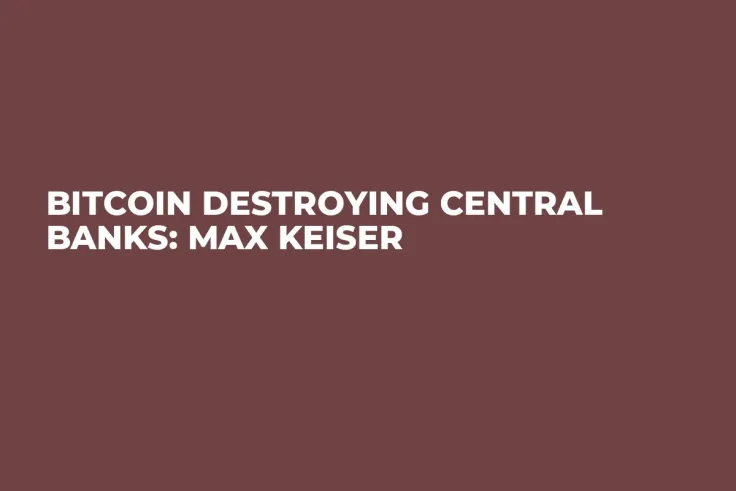
Disclaimer: The opinions expressed by our writers are their own and do not represent the views of U.Today. The financial and market information provided on U.Today is intended for informational purposes only. U.Today is not liable for any financial losses incurred while trading cryptocurrencies. Conduct your own research by contacting financial experts before making any investment decisions. We believe that all content is accurate as of the date of publication, but certain offers mentioned may no longer be available.
In a recent tweet, Max Keiser, a former financial journalist and currently the Bitcoin advisor to El Salvador president Nayib Bukele, took a jab at central banks, mentioning BTC as something that is destroying them gradually.
Keiser has commented on a recent speech made by the president of the European Central Bank, Christine Lagarde, in which she explained why there is a growing demand for CBCDs — central bank digital currencies.
Bitcoin helping central banks to fail: Keiser
In the video, Christine Lagarde talked about a significant decline in the use of cash in the European Union and a 50% rise in demand for digital payments. She stated that unless the ECB starts experimenting with central bank digital money, it will lose its role as anchor that it has been performing for commercial banks and private money for many decades.
Keiser commented on that, saying that the 300-year dominance of central banks is crashing thanks to Bitcoin since CBDC were inspired by it.
EUR going to zero against Bitcoin, Keiser predicts
As reported by U.Today earlier, Max Keiser also made an important statement about the EU fiat currency, the euro, and about stablecoins having a disruptive effect on the traditional financial system recently.
In particular, Keiser tweeted that he expects the EUR to go to zero against Bitcoin. Currently, the world’s largest cryptocurrency is changing hands at $117,990 and €103,143. The BTC price has gone down a little as Federal Reserve Chairman Jerome Powell announced on Wednesday that interest rates would again remain at the same level as before.
This Federal Reserve move has again sparked heavy criticism by U.S. President Donald Trump.

 Tomiwabold Olajide
Tomiwabold Olajide Caroline Amosun
Caroline Amosun Dan Burgin
Dan Burgin Godfrey Benjamin
Godfrey Benjamin